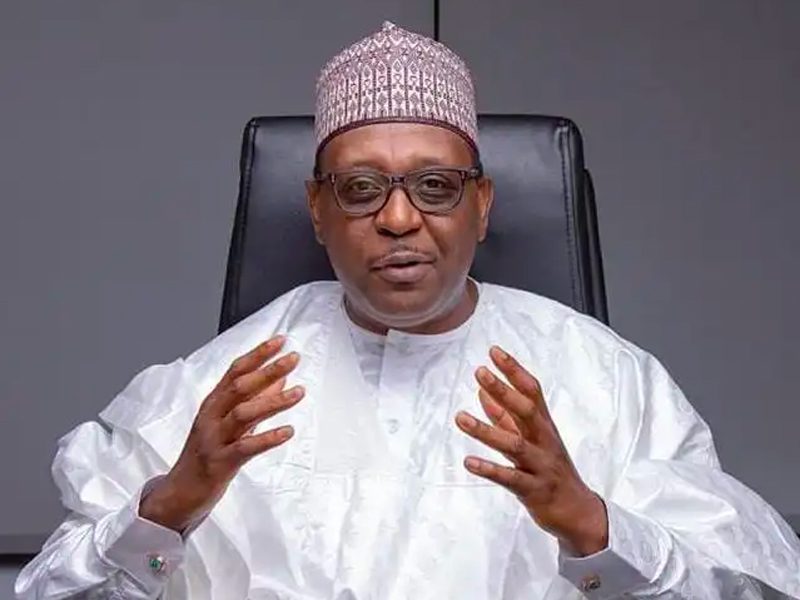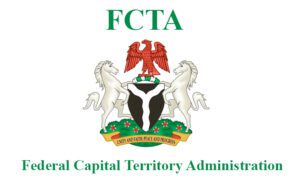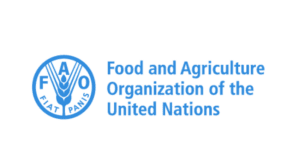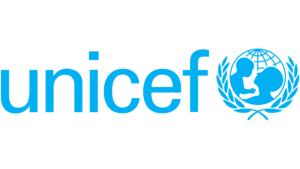
UHC Day: Minister unfolds performances, says under-five mortality reduces to 16.7percent, TB 24, HIV/AIDS 12 percent, others
By Matthew Denis
In commemoration of the Universal Health Coverage Day, the Honourable Coordinating Minister for Health & Social Welfare Prof. Muhammadu Ali Pate has rolled out some notable performances stating that the ministry on key population outcomes following the Nigeria Demographic Health Surveys (NDHC) and State of the Health report has recorded Under-five mortality reduction by 16.7 (from 132 per 1,000 live births in 2018 to 110 per 1,000 live births in 2023).
He made the disclosure during a press conference held in Abuja on Thursday.
The Minister said ” there is significant improvement in infectious diseases ranging from 40 percent reduction in diarrheal disease, 24 percent reduction in TB, 12% in HIV/AIDS and marginal increase in malaria burden.
“Nigerians are aware of our strides in battling well-known infectious diseases like Malaria, TB, and HIV/AIDS but are less aware of the significant strides made in the reduction of morbidity due to neglected tropical diseases that afflict poor populations and fester poverty.
” Over the years, the Government and partners have successfully interrupted the transmission of a number of NTDs, including Onchocerciasis, in 8 States. Over 29 million people formally on treatment no longer require annual administration. The government and its partners provided these medicines for free to the communities. This feat puts Nigeria as one of the countries on track to meet the 2030 global elimination target.
According to him seventeen Nigerian states (47% of total) have shown improved performance in the Modern Contraception Rate (mCPR). This has contributed to a 5% reduction in teenage pregnancy nationally between 2018 and 2024.
Prof.Pate stated that following the executive order signed by Mr. President Ahmed Tinubu we have stimulated local production of health products with about 40 business cases developed and over $1 billion of credit line facilitated through partnerships with AFREXIM and other partners.
He noted that Nigeria has improved its Joint External Evaluation (JEE) score for pandemics from 39% in 2017 to 54% in 2023.
“Today is a monumental day in Nigeria’s health sector as we mark one year of the Presidential unveiling of the Nigeria Health Sector Renewal Investment Initiative (NHSRII) and the signing of the Sector-Wide Approach (SWAp) compact between the Federal government, 36 state governments and FCT, and the Development Partners.
Speaking on challenges he posited that this initiative was in response to the myriads of challenges facing the health sector including Financing is inadequate, inefficient and inequitable – countries with lesser spend and GDP have better outcomes than us, neediest communities are often the least served
Governance is poor, driven by hyper-fragmentation, dis-coordination across the different levels of government, various regulators and development partners.
“Data collection is not comprehensive or credible and not used for decision- making. Inefficiencies in development assistance, driven by lack of coordination and alignment in financing and technical assistance
“Improve population health outcomes through an efficient, equitable, and quality health system. And Unlocking the healthcare value chain – Mr. President made a commitment to Nigerians to build an economy that will improve livelihood and living standards.
On inflation he said ” We recognize the increasing cost of health care (services and drugs), and to provide succor to the population in the short term, under the PVAC, we are in the process of pool-procuring essential medicines to ensure quality, availability, and affordability of these drugs within our public facilities.
“In the medium and long term, the local manufacturing of pharmaceutical products and commodities will help reduce costs and ensure availability within the country. This contributes to UHC’s goal of reducing the financial burden of health services. Strengthen health security and resilience – In an interconnected world, with free movement between regions and countries, we need to strengthen our health security infrastructure and systems by strengthening the NCDC to respond appropriately to prevent, detect, and respond to health outbreaks/threats.
The Minister reiterated that the NCDC has a robust history of confronting outbreaks like Ebola, COVID-19, Lassa fever, cholera, etc. In response to the increasing threats of climate change on health, we recently launched the Health National Vulnerability and Adaptation Plan (HNVAP). The HNVAP lays out the country’s core priority actions over the coming years to address the consequences of climate change on health.
“Our Blueprint recognizes the role of data and digitization, the need to increase the efficiency and alignment of health spending and strengthen human resource capacities to drive performance to achieve the bold policy shifts outlined above.
Prof. Pate summoned that the latest National Health Account expenditure data by the FMoHSW and the National Bureau of Statistics estimate the total health expenditure per Nigerian at under $100. The government spends $15.5 per capita, and external development assistance accounts for $10.5 per capita. This means Nigerians spent over $70 per capita. There needs to be a radical shift in this distribution. We must transfer risks and financial burdens from individuals to governments and their implementation schemes.
To ensure effective and efficient use of the resources, we have adopted the sector-wide approach (SWAp) grounded in the following core principles to drive our vision and achieve our set goals: One Plan, One Budget, One report, One Conversation and One Voice. I am happy that all our state Governors have identified with our vision through the signing of the Compact
” As a government, we have mobilized and raised additional revenue for health. Mr. President has increased the allocation to the health sector, and development partners have committed additional external development assistance funds. As of today, We have mobilized >$3 bn of additional funding (3yrs) through NHSRII SWAp, including $2.178 billion confirmed external financing to be spent alongside government appropriation between 2024 and 2026 on the health of Nigerians. This will enable government and development partners to spend more while individual out-of-pocket expenditure is reduced.
“Mr. President, in pursuance of his administration’s goal within the Nigeria Health Sector Renewal Investment Initiative, has continued to expand healthcare coverage to Nigerians and transfer costs from individuals to the government. Our administration has increased the number of lives enrolled in Health Insurance by 14% as of Q3 of 2024. This is a modest yet significant addition of 2 million persons to the pool in less than a year. It brings the total to 8 million insured lives. Since the Scheme was launched in 2005, if we had 2 million lives enrolled every year, we would have had about 40 million Nigerians with health insurance coverage today.
” Enrolling in an insurance scheme ensures that Nigerians can get medical care without paying for it at the point and time of need. Mr. President and our Governors recognize that indigent and vulnerable members of our society cannot afford to pay health insurance premiums. This is why the Federal Government established the basic healthcare provision fund and the vulnerable group funds. Through the BHCPF, ₦45.9BN has been disbursed through direct financing to facilities already this year. The Equity funds by State Governments support care for its indigenes who are most in need. These funds complement the social sector interventions targeting these groups.
“Through the SWAp Coordinating Office, we have supported the 36 states +FCT in developing their Annual Operational Plans (AOP). This is the first time states have completed their AOP before the budgetary cycle. States AOPs were developed in alignment with the sector’s key priorities. This will support states to align their resources with the key health priorities of their states and the country.
“As a proactive government, Mr. President has directed that we strategically purchase health for target groups whose insurance premiums are high due to already existing morbidity from disease. These include women who suffer from vesicovaginal fistula and investments to set up cancer treatment centers across the country. As of October 2024, we had successfully undertaken 879 obstetric fistula repairs across 19 centers in the country, with a target of 2,500 before the year ends. This has restored the quality of lives of our women and their dignity.
“In the last year, 238 facilities have been upgraded to functional level 2, an additional 320 facilities are in the process of being upgraded, States have taken on 2,600 facilities and through the HOPE PHC incentivizing States to upgrade an additional 2000 facilities
“As a demonstration of Mr. President commitment to improving the health workforce, so far, we have retrained 53,000 FLWs, out of 120,000. We have also increased the capacity of health institutions to increase their quota so we can train more health workers.”
He added that in terms of the perception of Nigerians, we have some good news to report More Nigerians (47%) endorsed the trajectory of the health system and 54percent are confident in the government’s capacity to effectively manage health emergencies; an increase of 17% when compared to the 2023 PVS.




